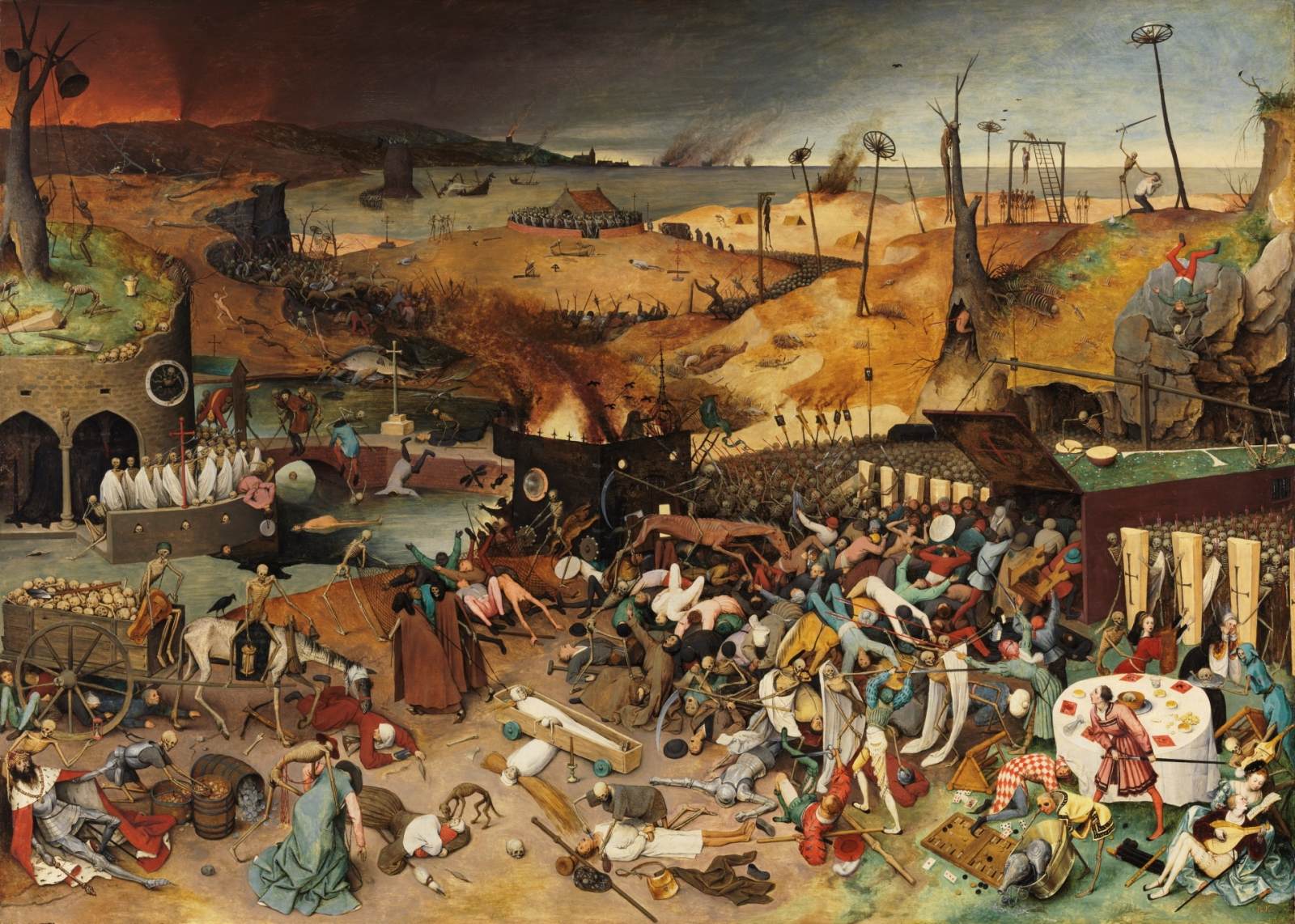Description
The painting "The Triumph of Death" by Flemish artist Pieter Bruegel the Elder is a 16th-century masterpiece that features a mix of macabre and symbolic elements. The composition of the painting is impressive, with a large number of moving figures and a wide variety of details that make the work very interesting to behold.
Bruegel's art style is characterized by his ability to create highly detailed and realistic scenes. In "The Triumph of Death", the artist uses a very precise and detailed painting technique to depict death and destruction taking over the world. The figures in the painting are very expressive and convey a sense of anguish and despair.
The color in the painting is very dark and gloomy, reflecting the theme of death and destruction. Brown and gray tones predominate in the painting, creating a feeling of sadness and desolation.
The history of painting is fascinating. Bruegel is believed to have painted the work in 1562, during a time when Europe was being ravaged by the bubonic plague and the Eighty Years' War. The painting is a reflection on mortality and the fragility of human life, and shows the inevitability of death.
One of the lesser known aspects of the painting is its original size. At 117 x 162 cm, the work is relatively small compared to other famous paintings of the time. However, this does not detract from the work, as the amount of detail and the artist's skill in creating such an intricate and detailed scene is impressive.
In short, "The Triumph of Death" is a fascinating painting that combines macabre and symbolic elements with highly detailed and realistic painting technique. The history of the painting and its original size are interesting aspects that add even more value to this masterpiece of Flemish art.

